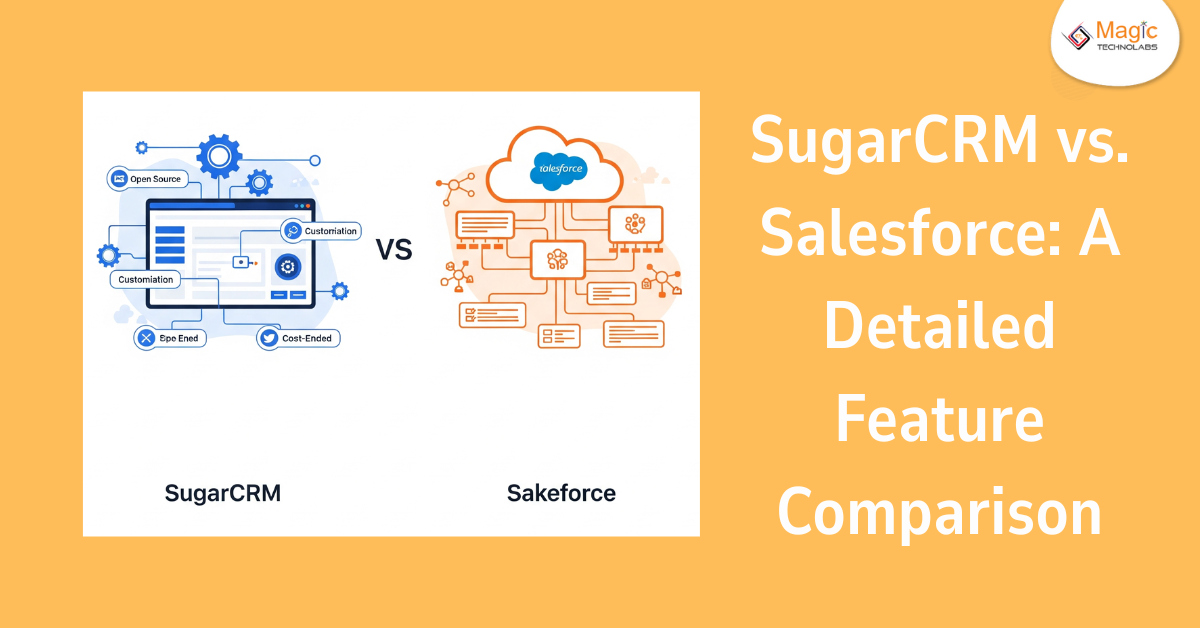SugarCRM and salesforce are two market leaders in terms of CRM platforms. They both provide potent tools in sales, marketing and customer service- but which works best in your business?
When it comes to your choice between SugarCRM and Salesforce, you cannot possibly afford getting into this long-running debate. This will provide an insight into the main features, pricing, flexibility, and use of those CRMs to enable an informed decision. Being a startup, mid-sized business or an enterprise doesn t matter as knowing strengths and trade-offs of these CRM titans is essential to fueling productivity and fueling revenue.
So, it is time to get into this side-by-side CRM feature comparison to get your right match.
SugarCRM vs. Salesforce: features line-by-line comparison
1. Intuitiveness & UI
SugarCRM:
Interface is easily customizable and clean.
This flexibility comes with the open source where you can adapt the UI to fit your teams workflow.
Low learning curve among the non-technical users
Salesforce:
Slick, contemporary UI, multi touch and drag and drop support
User-friendly dashboards
Training is needed because it has an extended scope of features
The conclusion: Salesforce wins on out of the box serviceability; SugarCRM on customization by tech teams.
2. Customization & Flexibility
SugarCRM:
It is very customizable particularly to developers
There is an open-source alternative
Best in applications where the business does not want to leave data and layout to chance
Salesforce:
Has extensive customisation via the AppExchange and force.com
Needs Salesforce-certified developers to make high level modifications
Comes together with thousands of third-party apps
Verdict: SugarCRM is more full customisation worthy; Salesforce offers more prebuilt integrations.
3. Sales Automation Tools
SugarCRM:
Lead tracking and opportunity management
Advanced forecasting tools
Workflow automation for sales processes
Salesforce:
AI-powered sales insights with Salesforce Einstein
Detailed lead scoring, territory management
Sales Cloud includes email tracking, quotes, and approvals
Verdict: Salesforce edges out SugarCRM in AI and automation; SugarCRM is solid but simpler.
4. Marketing Automation
















